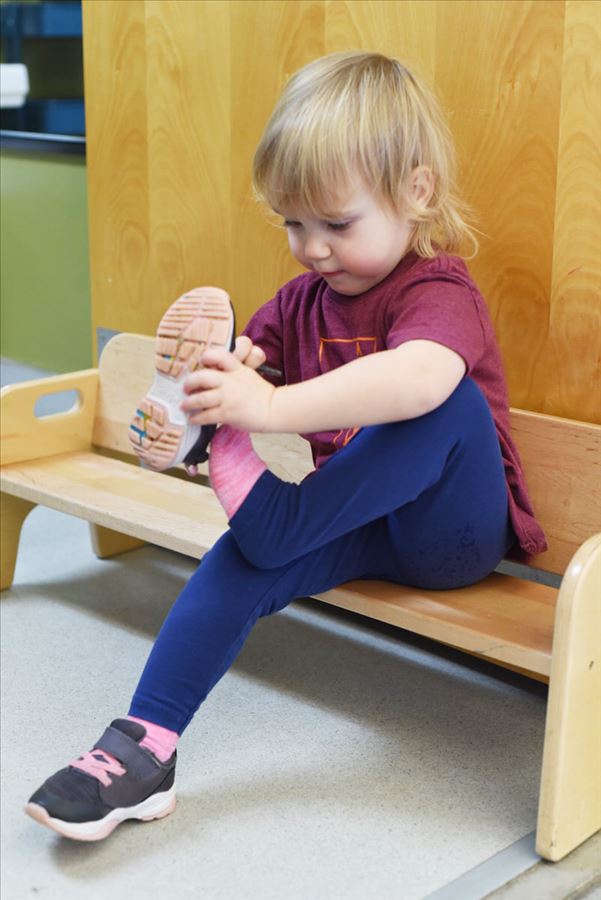Have you noticed that all babies and young children tend to want to do things by themselves? This tendency is the beginning of independence, which promotes confidence and self-esteem as well as motivation and perseverance. It fosters self-reliance, allowing your child to feel they have control over their life. It gives your child a sense of importance and belonging which is essential for building social relationships and for contributing to the world. It develops their self-awareness and sensitivity towards others which teaches them to help those around them. It teaches them self-motivation as they have the freedom to find their own reasons to achieve. It provides them with the belief that they are competent and capable of taking care of themselves, which makes them resilient to external challenges. It allows them to become good decision-makers as they have the freedom to consider various options before the one they feel is best.
Through independence, children develop vital qualities such as patience, concentration, self-help, cooperation and self-trust. They establish the capacity for freedom to experience life fully, and learn its many important lessons. Independence makes a child experience joy as they feel a great sense of achievement and success as a direct result of their own actions.
Giving ‘our little people’ the gift of independence lets them know that we value them so that they grow up with a strong sense of self-belief that they can do anything they put their mind to. Not only does this help our children grow and develop, but it also fosters them to be confident and competent communicators, curious and resilient explorers, and creative thinkers.
How do we encourage independence as parents?
-
Stop Doing Everything for Them
Although it may be easier to just do things yourself, this teaches your child nothing about the task at hand. Show them, teach them, and then let them handle these tasks on their own. If they need help, they’ll ask for it.
-
Love, Respect, and Patience
Always show your child love, respect, and patience. When these components are present, a child’s confidence builds. As a result, they will be more apt to go off and try things on their own. If they know they are supported and will not be called out for making mistakes, they will feel more encouraged to try things independently.
-
Teach Them Life Skills
One day, your child will grow into a healthy adult. And, when they do, they need to have basic life skills which include things such as cooking, laundry, money management, and the ability to follow through.
-
Give Them Responsibilities
Since everybody is living under the same roof and are making messes, everyone should be responsible for keeping the home clean. Chores will undoubtedly help to teach your child valuable life skills, the value of hard work, responsibility, and respect for themselves and others.
-
Show Confidence
Acknowledge your pride in their accomplishments. If your toddler washed their hands on their own after using the restroom, that deserves a thumbs up! “I knew you could use the sink all on your own.”
-
Create an Independent Environment
Let your child figure things out. Using their own minds and capabilities to solve problems and accomplish tasks is huge. Also, give them space when they need it. Alone time is healthy. It allows your child to gather their thoughts, think about their next move and create a plan. Allow them to pick out their own clothing or pajamas; Allow them to choose their fun activity; coloring, book, painting, etc.
-
Let Them Make Mistakes
Your child is going to make mistakes…it is inevitable! We all do and we should model accepting our mistakes to them.. That’s how we all learn. Show confidence in their abilities. Even if they make a mistake, and they will, encourage them to keep trying.
-
Stop Trying to Raise a “Happy Kid”
Your job, as a parent, is to raise a well-adjusted individual who can manage life outside the safety net of your home. “Letting go” of needing to feel in control of your child’s happiness allows you to redefine parenting into teaching self-efficacy, which is a skill that has a much greater chance of ensuring a fulfilling and meaningful life for your child.
-
Set Boundaries and Expectations
These boundaries and expectations are opportunities to teach problem solving, relationship repair and accountability. Practice offering choices within your comfort level. For example, a small boundary could be, “If you oversleep this morning, I will have to stay at work later so I won’t be able to drive you to your friend’s house like you planned.”
You may not want your children to grow up too quickly, but independence is something they need to learn. If they don’t, then they may react with anger and resistance, suffer from feelings of abandonment and develop a seemingly indifferent attitude.
The last thing we want for our children is for them to feel insecure and to be vulnerable to external hazards, so start to encourage independence now. This will help them to develop into strong, competent, and capable adults ready to take on the world and its challenges.
“The greatest gifts we can give our children are the roots of responsibility and the wings of independence.”
- Dr. Maria Montessori
